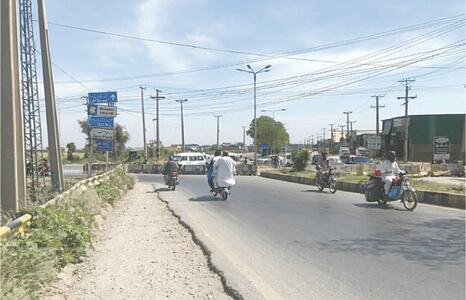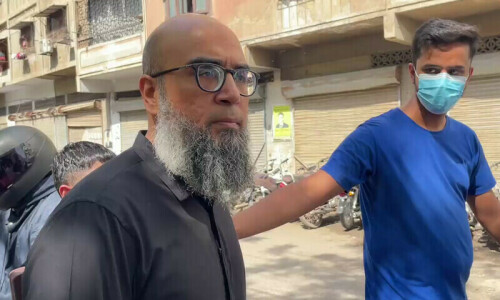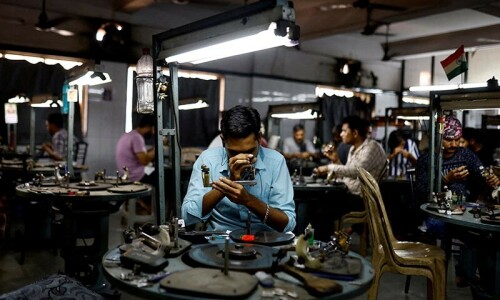With simultaneous sessions going on in the halls and central lawn of the Margalla Hotel, the second day of the 6th Islamabad Literature Festival (ILF) had something of interest for everyone.
‘Adding up the Energy Equation’ was moderated by Asad Ali Shah, with Kamran Kamal, Saadia Qayyum and Shaharyar Nashat on the panel.
The panellists considered the evolution of the energy landscape looking at the growth of both supply and demand of electricity, energy efficiency, alternative sources and constraints and risks because of circular debt and payment schedules.
The Young Women Writers Forum session, titled Naya Asloob, Nayee Aurat, was moderated by Farheen Khalid in conversation with Munazza Gillani, Safia Shahid, Absar Fatima Jafri and Muafiya Sheikh.

Ms Gillani explained that she had been working for the rights of the differently-abled for 15 years, saying: “What we have observed repeatedly is that families that have differently-abled people in their households hide them away because there is a stigma attached to disability. Then when you talk about differently-abled women, the challenges multiply. If you are a woman you have fewer opportunities than men, then if you are poor or belong to a poor household, the opportunities shrink even more and then if you are a differently-abled poor woman you face triple discrimination.”
Discussing definitions of feminism, Ms Shahid said: “One of the great quandaries of our society is that when we mention feminism, there is a smile on the faces of the listeners. In some cases, it is supportive but in others it is mocking. We see things on social media, ‘You keep going on about feminism, will you be able to drive a truck?’

“Yes, we drive cars, we’ll drive trucks as well. Then we’re told feminism is all very well, you want to be equal to men, but how would you look sitting on the roof of a vehicle. These are very common attitudes. This is not feminism for us – feminism is awareness of one’s self and that is not a fight against men. This is a fight which women have to fight against themselves as they do not know how to express themselves.”
A conversation with Soniah Kamal, author of Unmarriageable: Jane Austen’s Pride and Prejudice in Pakistan, was moderated by Aliya Iqbal-Naqvi.

“The book is inspired by the resonance between the patriarchal societies of 19th century Britain and postcolonial Pakistan but it is also a universal story about the lives of women, about their traditional roles and the ties of family, friends and frenemies,” Ms Naqvi said.
“Pride and Prejudice felt to me like a quintessentially Pakistani story, a mother who is desperate to see her five daughters married and married well. And the original is of course set in Regency England, 200 years ago when women had very little agency, except for being able to earn a living as a governess. They really did have to get married to have any sort of financial security. Austen is a satirist and wonderful in the way she is able to capture hypocrisies and double standards, and that resonated with the teenage me,” Ms Kamal said.
She added: “It wasn’t until I was older when I came across Thomas Babington Macaulay’s address to British Parliament where he sets linguistic policy for the colonies that I suddenly realised why I was speaking English rather than some other language and it felt necessary for me to reclaim identity, and remap and reorient empire’s linguistic history in a postcolonial sense. This is why Unmarriageable is a parallel re-telling, it includes every plot point and every character of the original.”

The day also saw the launches of Kaun by Mudassar Bashir, Prison Interlude: The Last Eyewitness Account of the Rawalpindi Conspiracy Case by Zafar Ullah Poshni, and the Urdu translation of A Case of Exploding Mangoes by Mohammad Hanif.
Published in Dawn, September 29th, 2019














































